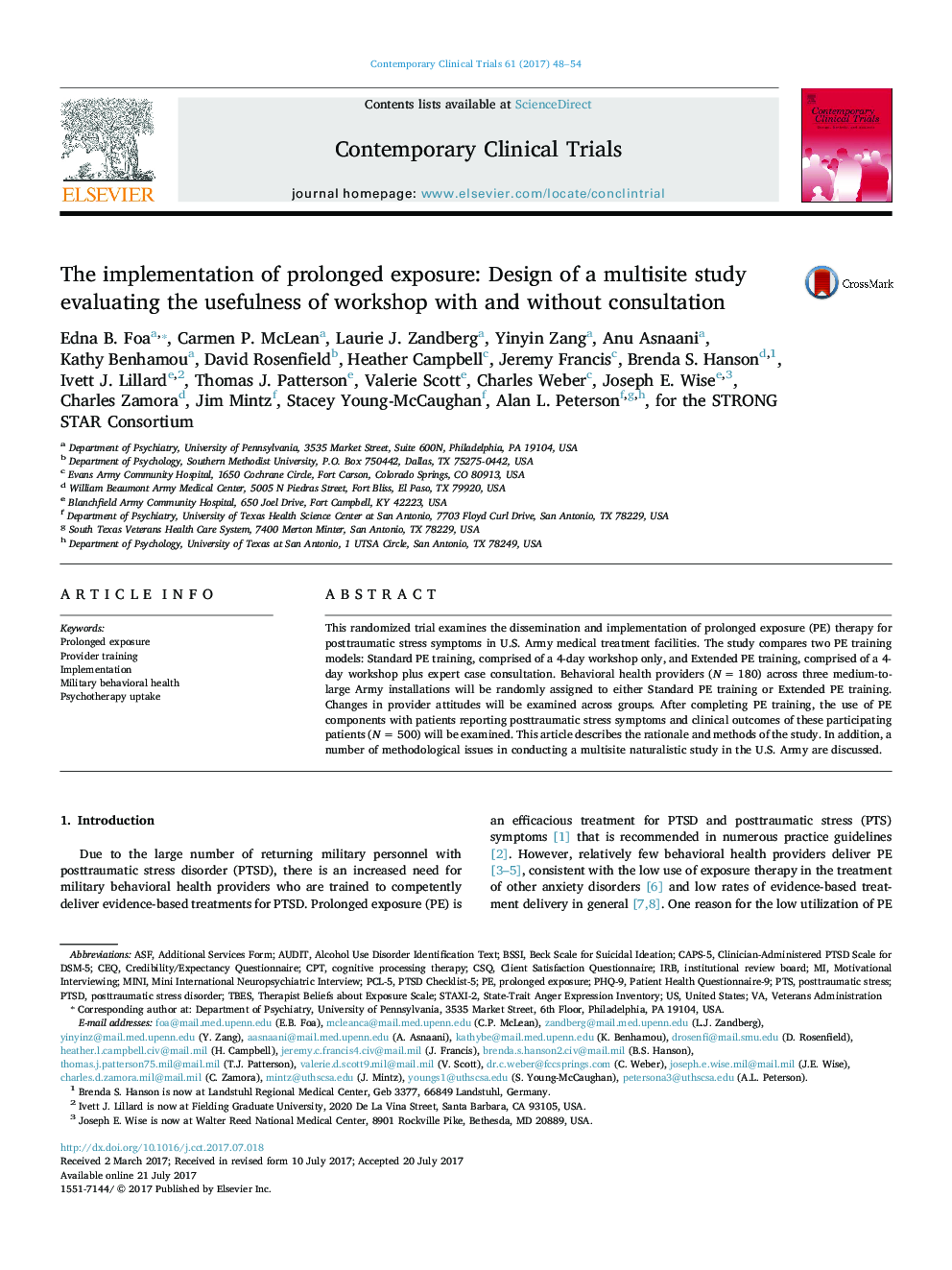| Article ID | Journal | Published Year | Pages | File Type |
|---|---|---|---|---|
| 5678532 | Contemporary Clinical Trials | 2017 | 7 Pages |
Abstract
This randomized trial examines the dissemination and implementation of prolonged exposure (PE) therapy for posttraumatic stress symptoms in U.S. Army medical treatment facilities. The study compares two PE training models: Standard PE training, comprised of a 4-day workshop only, and Extended PE training, comprised of a 4-day workshop plus expert case consultation. Behavioral health providers (NÂ =Â 180) across three medium-to-large Army installations will be randomly assigned to either Standard PE training or Extended PE training. Changes in provider attitudes will be examined across groups. After completing PE training, the use of PE components with patients reporting posttraumatic stress symptoms and clinical outcomes of these participating patients (NÂ =Â 500) will be examined. This article describes the rationale and methods of the study. In addition, a number of methodological issues in conducting a multisite naturalistic study in the U.S. Army are discussed.
Keywords
CAPS-5State-Trait Anger Expression InventoryPTSIRBasfCEQCSQPHQ-9CPTPCL-5Provider trainingPosttraumatic stress disorderPTSDVeterans AdministrationPosttraumatic StressUnited StatesAuditCognitive processing therapyprolonged exposureMotivational interviewingMINIMini International Neuropsychiatric Interviewinstitutional review boardPatient Health Questionnaire-9Implementation
Related Topics
Health Sciences
Medicine and Dentistry
Medicine and Dentistry (General)
Authors
Edna B. Foa, Carmen P. McLean, Laurie J. Zandberg, Yinyin Zang, Anu Asnaani, Kathy Benhamou, David Rosenfield, Heather Campbell, Jeremy Francis, Brenda S. Hanson, Ivett J. Lillard, Thomas J. Patterson, Valerie Scott, Charles Weber, Joseph E. Wise,
